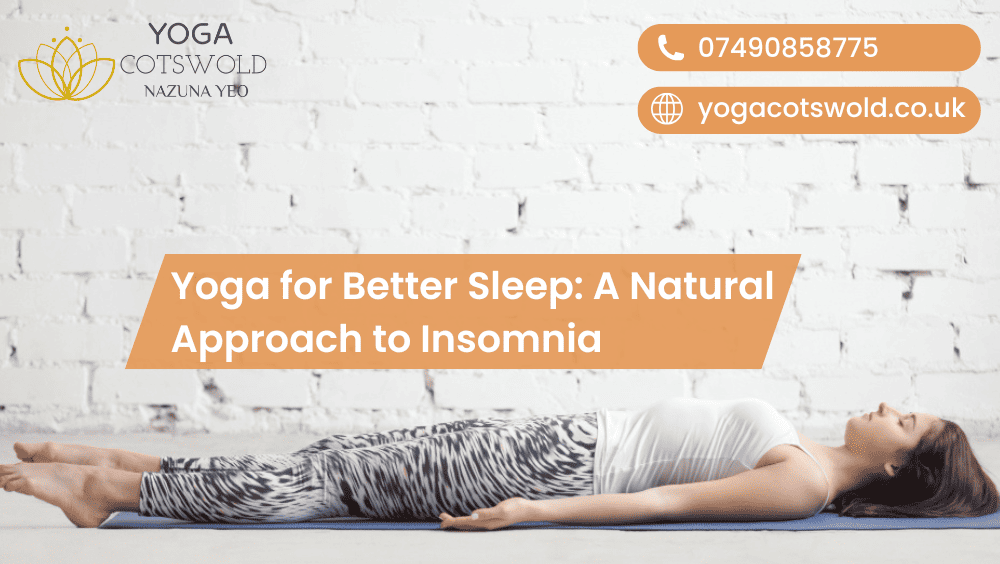Yoga for Better Sleep: A Natural Approach to Insomnia

Yoga for Better Sleep: A Natural Approach to Insomnia: Struggling with insomnia can be frustrating. Many people rely on medication to fall asleep, but there is a natural alternative that works gently and effectively: yoga. Yoga is not only a physical exercise; it also calms the mind, reduces stress, and improves sleep quality. By incorporating simple yoga routines into your nightly schedule, you can enjoy better sleep without side effects.
Firstly, yoga helps relax both the body and mind. When we experience stress, our body produces cortisol, a hormone that makes it harder to sleep. Regular yoga practice lowers cortisol levels, allowing the body to unwind naturally. Additionally, yoga encourages deep breathing, which signals the nervous system to enter a state of rest. This combination of relaxation techniques prepares the body for a more restful sleep.
Moreover, certain yoga poses are especially helpful for insomnia. Poses like Legs Up the Wall (Viparita Karani), Child’s Pose (Balasana), and Corpse Pose (Savasana) gently stretch the body while calming the mind. These poses reduce tension in muscles and joints, which is often a barrier to falling asleep. Performing them for just 10 to 15 minutes before bed can make a noticeable difference.
In addition to physical benefits, yoga also improves mental clarity. Insomnia often results from overthinking or anxiety. Practices such as guided meditation and mindful breathing help quiet racing thoughts. As a result, the mind feels lighter, and the body can naturally drift into sleep. Over time, consistent practice trains the brain to associate bedtime with relaxation rather than worry.
Another advantage of yoga is its adaptability. You do not need special equipment or a gym membership. A quiet space at home and a yoga mat are enough to start. Furthermore, yoga is suitable for people of all ages and fitness levels. Beginners can begin with simple poses and gradually explore more advanced techniques as they become comfortable.
Additionally, yoga improves overall sleep quality. Unlike sleeping pills, which may cause grogginess, yoga promotes deep, restorative sleep. By practicing regularly, you can reduce nighttime awakenings and wake up feeling refreshed. Also, yoga supports better breathing patterns during sleep, which is especially helpful for those with mild sleep apnea or snoring issues.
Related Articles:
» 7 Powerful Ways Yoga Helps You Sleep Better
» Live longer with yoga practice
» Why should I do a Personalised One-to-One Yoga?
» How Yoga Supports Mental Health?
» How One-to-One Yoga Helps You Achieve Better Results?
Finally, making yoga a nightly habit can transform your relationship with sleep. Start small by dedicating 10 minutes before bed for stretching and breathing exercises. Over time, these small steps create a sustainable routine that naturally combats insomnia. Consistency is key, and even short sessions can provide significant benefits.
In conclusion, yoga offers a natural, effective, and safe approach to improving sleep. By combining physical poses, mindful breathing, and meditation, you can reduce stress, calm the mind, and enjoy deeper, more restorative sleep. Embracing yoga as part of your nightly routine is a simple yet powerful step toward overcoming insomnia without relying on medication.
Social:
https://www.linkedin.com/feed/update/urn:li:activity:7366387310986260481
https://uk.pinterest.com/pin/1114711345281279515
Comments
Post a Comment